Spring also brings about an important time of year for the raccoon: the breeding season, which is often reported to occur in "late winter/early spring". This time of year also, apparently, brings out conflict.
The pictures below outline a raccoon "fight" as it unfolds.
The disagreement apparently begins over occupation of a tree.
Their tussle soon moves to the forest floor, with no sign of abatement.
Having enough, one individual appears to try and escape up a tree...but is denied!
Shortly, thereafter, the two raccoons roll out of view. A few seconds pass before a single raccoon appears to leave the scene (I didn't post a picture of that).
Anyways, I have no idea for certain what this behavior was associated with.
Information on social organization in raccoons seems to vary. For example, Jackson in his classic Mammals of Wisconsin, published in 1961 (now out-of-print) refers to the raccoon as "socially inclined" and "somewhat gregarious". Hadidian et al. (2010) report raccoons are often described as being "solitary", which they mention may be due to their nocturnal behavior as opposed to social intolerance. Individuals often have overlapping home ranges (i.e., areas they patrol throughout their active period). Related individuals will also apparently occupy the landscape somewhat close to eachother (although not directly interacting with one another that often). Futhermore, offspring remain with their mothers for extended periods of time while growing. However, Johnson (1970) and Fritzell (1978) report evidence to support strong intolerance and even territoriality among raccoons existing at low population densities.
Because the study site where these pictures were taken certainly does not have a low population density (raccoons are EVERYWHERE, it seems)....I'm assuming that this interaction is not social intolerance or territoriality. But...to be fair....that's a HUGE assumption on my part.
Perhaps, then it is related to the breeding season. Is breeding a rather "vigorous", perhaps prickly, endeavor among raccoons? It appears that *might* be the case in the pictures taken below. Not long before the above pictures were taken....a nearby camera took the following shots of a raccoon pair caught in the act. They are on the left side of the field of view (look for the eyeshine). In this series of events, the female doesn't sit still for the male to complete his job (or so it appears). In fact, she keeps on moving and carries him out of the camera's field of view.
Or maybe it's just a good ol' fashion raccoon fight!
Notes on Raccoon Breeding Habits (as summarized by Long, 2008):
Raccoons are typically able to breed in their first year, but some wait until their second year depending on the weather conditions. Females usually have one litter a year, although occassionally two litters are possible. Most breeding occurs in late winter/early spring (February and March), and after a gestation period of roughly 60 days, birthing occurs.
Literature Cited:
Fritzell, E.K. 1978. Aspects of raccoon (Procyon lotor) social organization. Canadian Journal of Zoology 56:347-353.
Hadidian, J., S. Prange, R. Rosatte, S. P. D. Riley, and S. Gehrt. 2010. Raccoons (Procyon lotor). In: Urban Carnivores: ecology, conflict and conservation (S.D. Gehrt, S.P.D. Riley and B. L. Cypher, Eds.). John Hopkins University Press, Baltimore, MD.
Jackson, H. H. T. 1961. Mammals of Wisconsin. The University of Wisconsin Press, Madison, WI.
Johnson, A.S. 1970. Biology of the raccoon (Procyon lotor varius, Nelson and Goldman) in Alabama. Auburn University Agriculture Experiment Station Bulletin 402:1-148.
Long, C.A. 2008. The Wild Mammals of Wisconsin. Publication No. 56 of the Museum of Natural History, University of Wisconsin-Stevens Point, Reports on the Flora and Fauna.
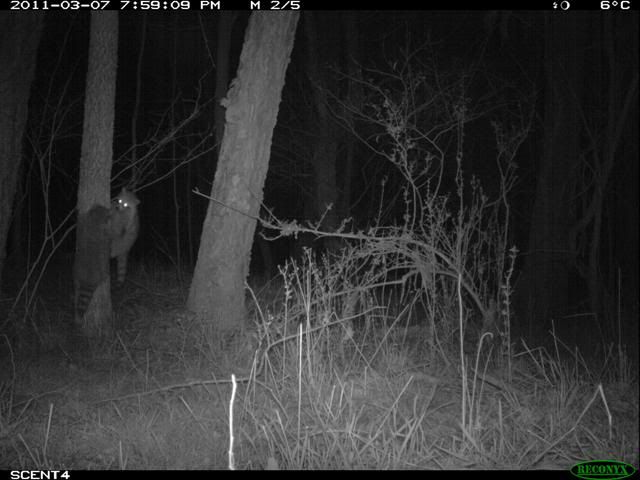
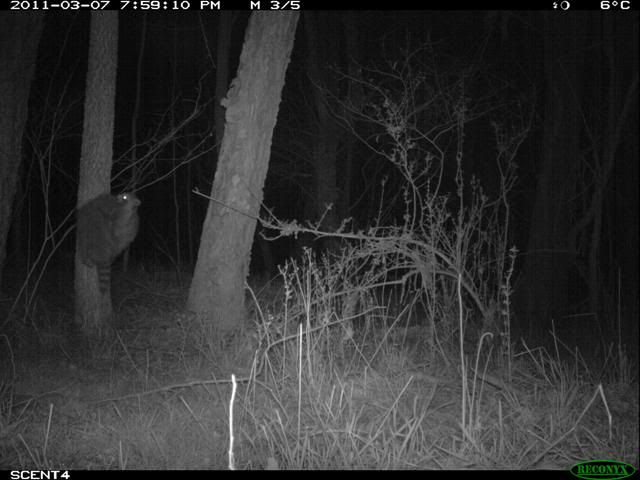
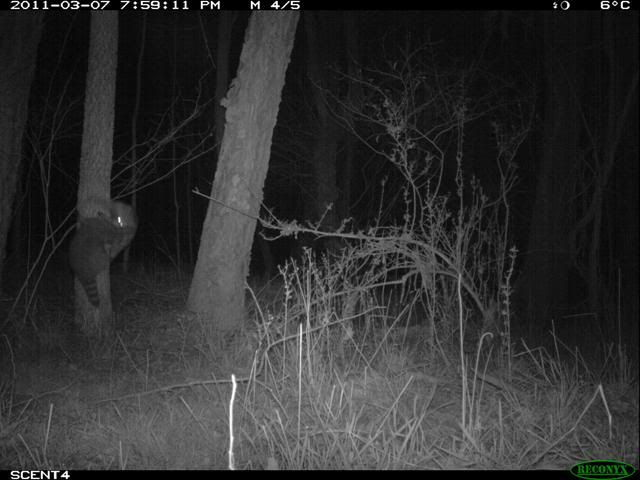
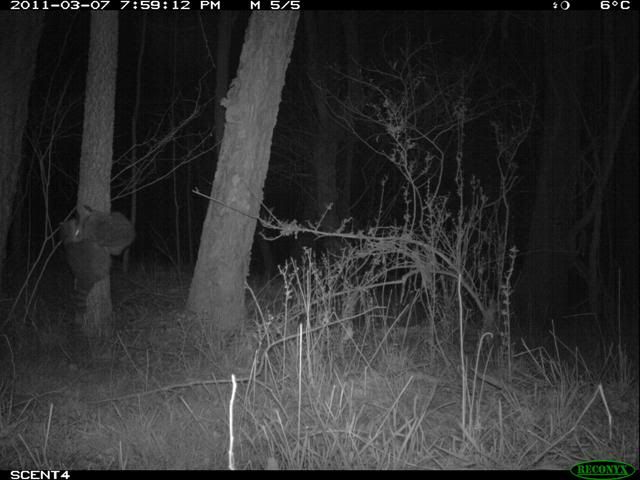
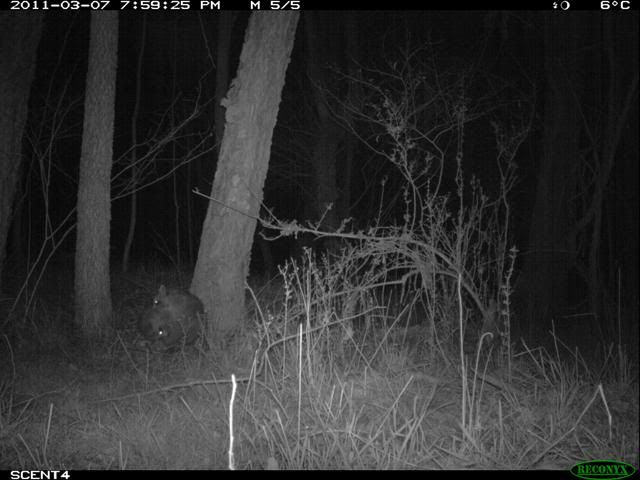
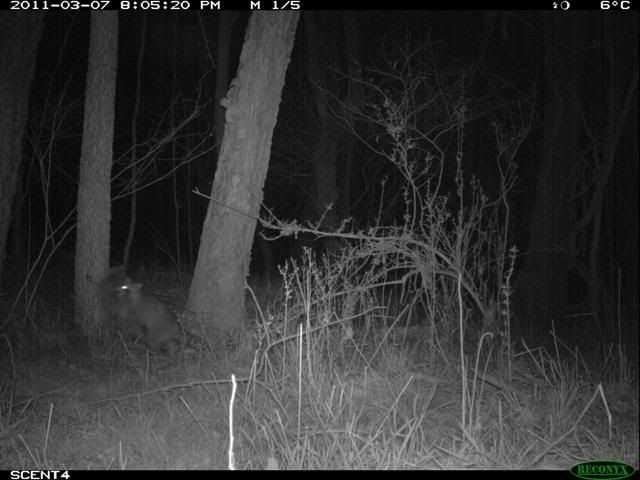
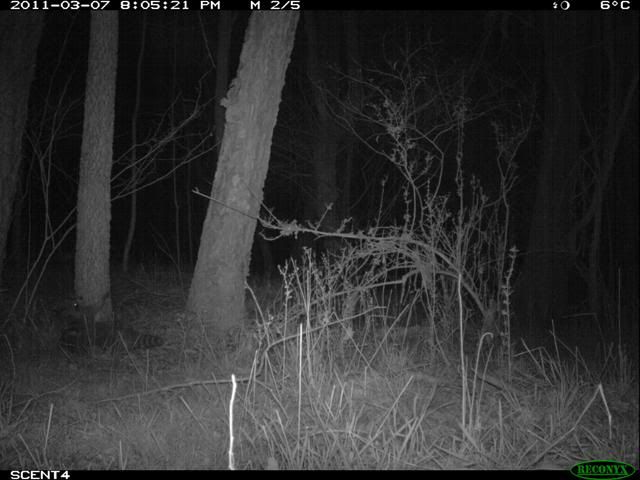

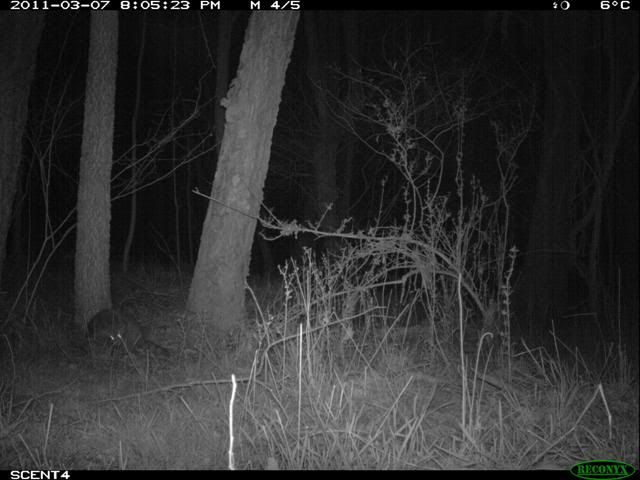
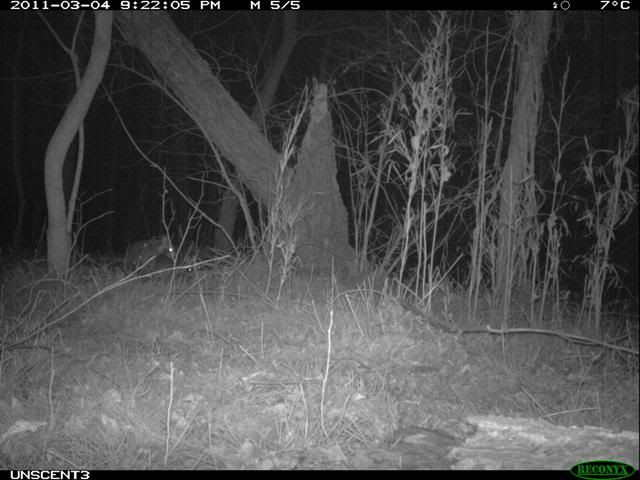
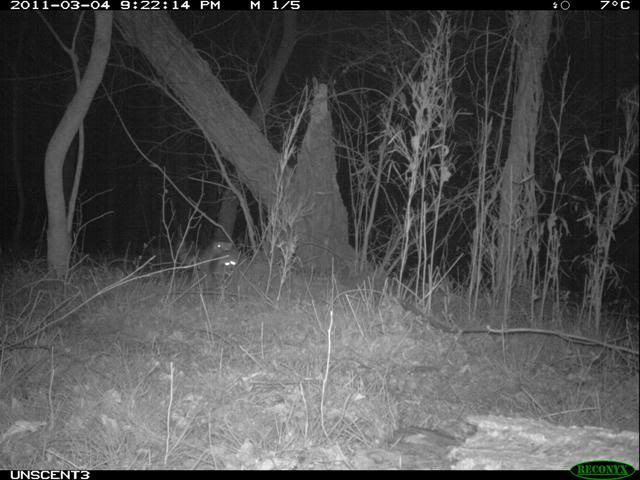
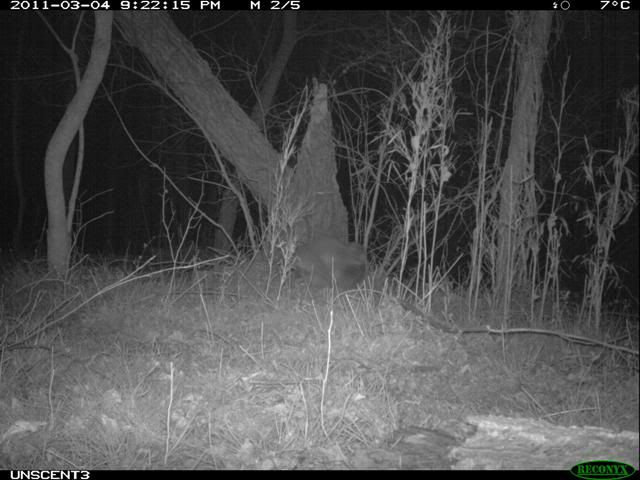
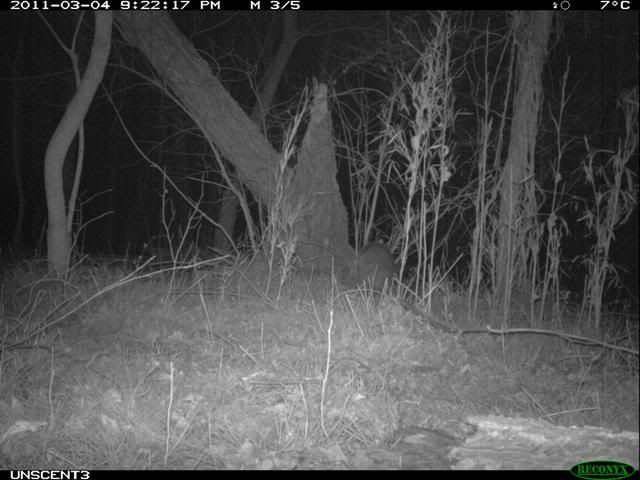
Great behavior shots. Those are always my favorite. I wonder if the first fighting raccoons aren't an unwilling female and her suitor like you suggest. Or maybe two males squabbling over a tree a particular female likes to hang out in. Excellent capture non-the-less.
ReplyDeleteThanks, JK!
ReplyDeleteThat's the great thing about the Reconyx...they don't always take nice, crisp pics (like the homebrews the Codger and Random Truth have)....but they snap pics instantly and repeatedly!
This is an HC600. "Black Flash" IR...so very low red IR glow.. it will take up to 10 pics in rapid succession with no delay. Trigger time is less than 0.5 seconds! It's the best commercial cam I have used, period.
Unfortnately, it has a high cost.
But those rapid pics are a great way to get behavior shots.